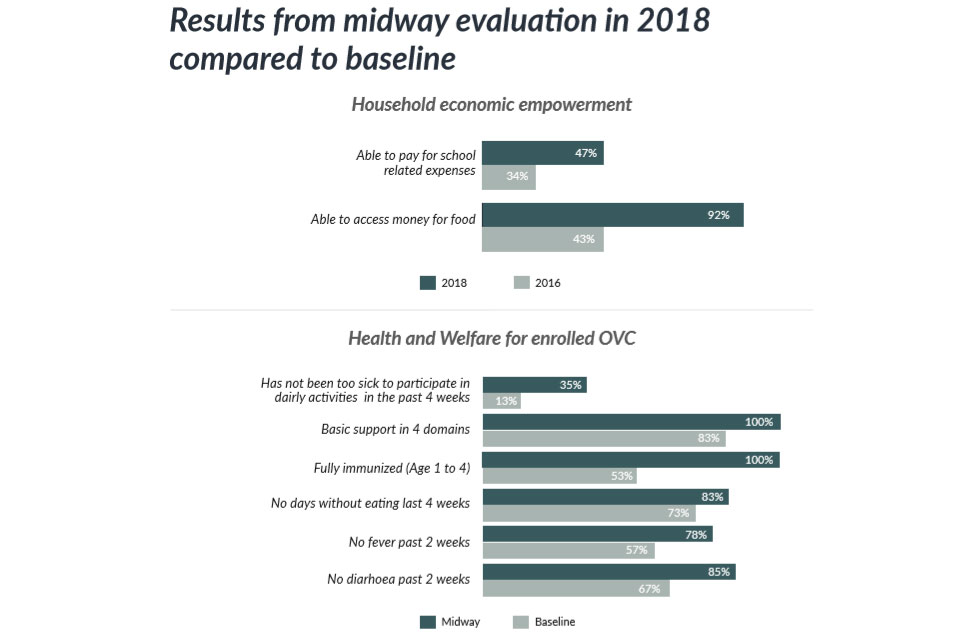DAPP in Zambia reached over 130,000 orphans and vulnerable children in 2017 through the Zambia Families Initiative (ZAMFAM) to improve the care and resilience of vulnerable populations in the Southern and Central Provinces with financial support from USAID / PEPFAR and in close cooperation with the government.

In the same year, 272 dedicated Field Staff based in the local communities worked with 70,219 families organised in 2463 Action Groups to improve the living conditions and health for the children.
The Action Groups are the backbone of the ZAMFAM project organising the member families mutually to support each other in the effort to improve care for their children. As a basic necessity the families improved water, sanitation and hygiene in their homes. They planned for and took action for individual children in order to improve their health, education and social relationships.
Activities to strengthen resilience and food security included to improve agriculture production through training and through “pass on gifts” of agriculture input such as legume seeds and Orange Flesh Sweet Potato runners as well as goats and chickens. The receiving families will pass on the gift to other families in need from harvested grains and from offspring from the livestock.
The project also embarked upon actions to ensure that all the children know their HIV status. To achieve this Child Care Volunteers screened all the children and organised testing of 28,711 children. In the coming year all other children that were found to have been in risk will be tested. Additionally the project organised a testing action in area to where the project would scale up, screened 173,706 children, tested 71,526 and identified 2,597 HIV positive children who were enrolled in ZAMFAM.
HIV prevention activities and life skill training for the children were implemented through in and out of school clubs as well as through community dialogue meetings. The dialogue meetings also included mobilising the communities to reduce gender based violence and increase child protection.
By the end of the year the project has a total of 9.089 HIV positive children enrolled while 58,134 children are orphans, and about 60,000 children are vulnerable in other ways for example living with people living with HIV or in risk of HIV infection.


